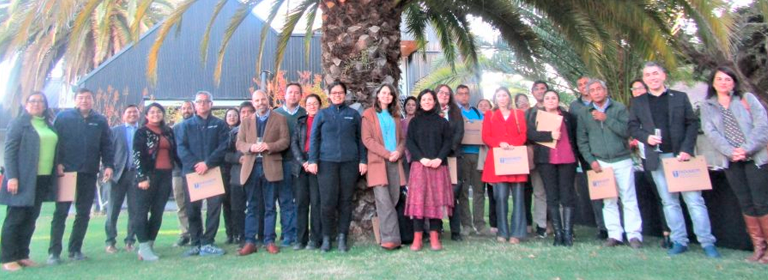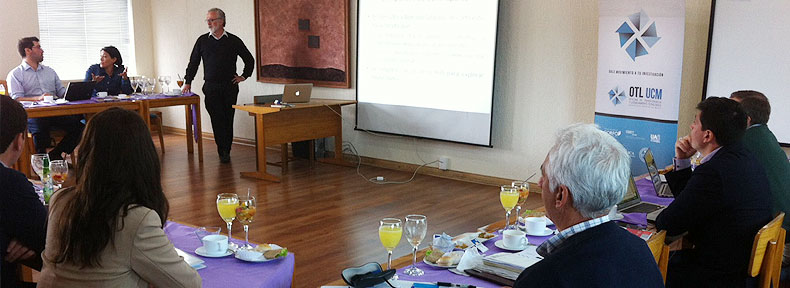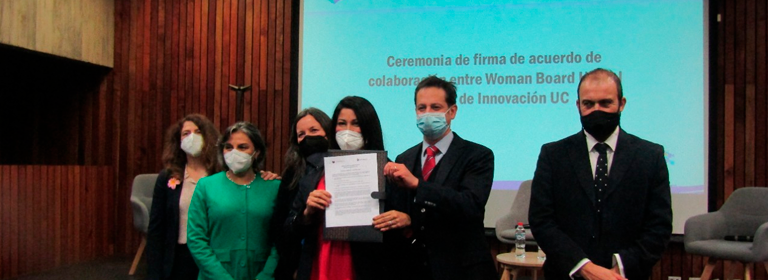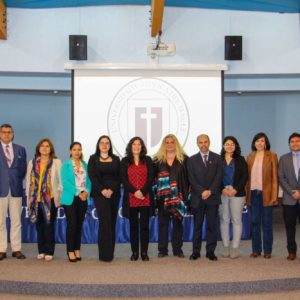The Department of Research in University Teaching of the Universidad Católica del Maule (UCM) established a research nucleus, which will address challenges in higher education.
 With a keynote speech, the Department of Research in University Teaching (DIDU, in Spanish) of the Universidad Católica del Maule presented its first nucleus of researchers in formative processes.
With a keynote speech, the Department of Research in University Teaching (DIDU, in Spanish) of the Universidad Católica del Maule presented its first nucleus of researchers in formative processes.
«We made an instance official, one that is very relevant for the university because we will do research on our own teaching practice, with the idea of improving the teaching we do,» said the Vice Rector for Research and Graduate Studies, Hernán Maureira, during the launch of the «NIDU».
«The University Teaching Research Nucleus is composed of 31 academics, coordinated by five mentors, and its work will strengthen the area of teaching research at UCM, making its products and research results visible in the national and international context,» said the director of the department, Aquiles Almonacid.
Under the auspices of NIDU, the campus expects to integrate new knowledge in teaching practice and contribute to the improvement of training processes in higher education.
«The activities will be framed in a collaborative and multidisciplinary work methodology,» added Almonacid.
 Students, relevant actors
Students, relevant actors
Rosa Orellana, PhD in Educational Sciences, who was in charge of the keynote talk that inaugurated the core, asserted that students are an important factor in the challenge of updating teaching practices.
«They are not only key informants, but they can also be producers of valuable and necessary knowledge to improve training processes and give meaning to the projects of university institutions. The student body has demonstrated its sensitivity to the needs of justice and equality in our society and the strengthening of democracy, and of course the training of professionals can never remain oblivious to these concerns. That is why research in higher education requires these factors to understand, evaluate, think, and enrich their practices and educational purposes,» she said.
The Universidad Autónoma academic said that the search for effective teaching strategies must incorporate an ethical dimension.
 «It is necessary to train citizens of the world capable of understanding the scope of their daily actions in all spheres of life. Climate change and the ambition to build more inclusive societies are examples of what should permanently challenge us. It is a challenge to train professionals capable of deconstructing received ideas, of questioning truths, of producing knowledge and participating in its democratization,» she said.
«It is necessary to train citizens of the world capable of understanding the scope of their daily actions in all spheres of life. Climate change and the ambition to build more inclusive societies are examples of what should permanently challenge us. It is a challenge to train professionals capable of deconstructing received ideas, of questioning truths, of producing knowledge and participating in its democratization,» she said.
Along the same lines, Orellana evaluated UCM’s efforts positively.
«It seems of great value to me to strengthen the faculty and create learning communities. Each professional trained by the Universidad Católica del Maule is a professional in the world who will lead and participate in projects of all kinds. How is the training received by this future professional effective and consistent with the technological, economic, ecological, social, and practical needs we face today? This core assumes this search», she emphasized.













